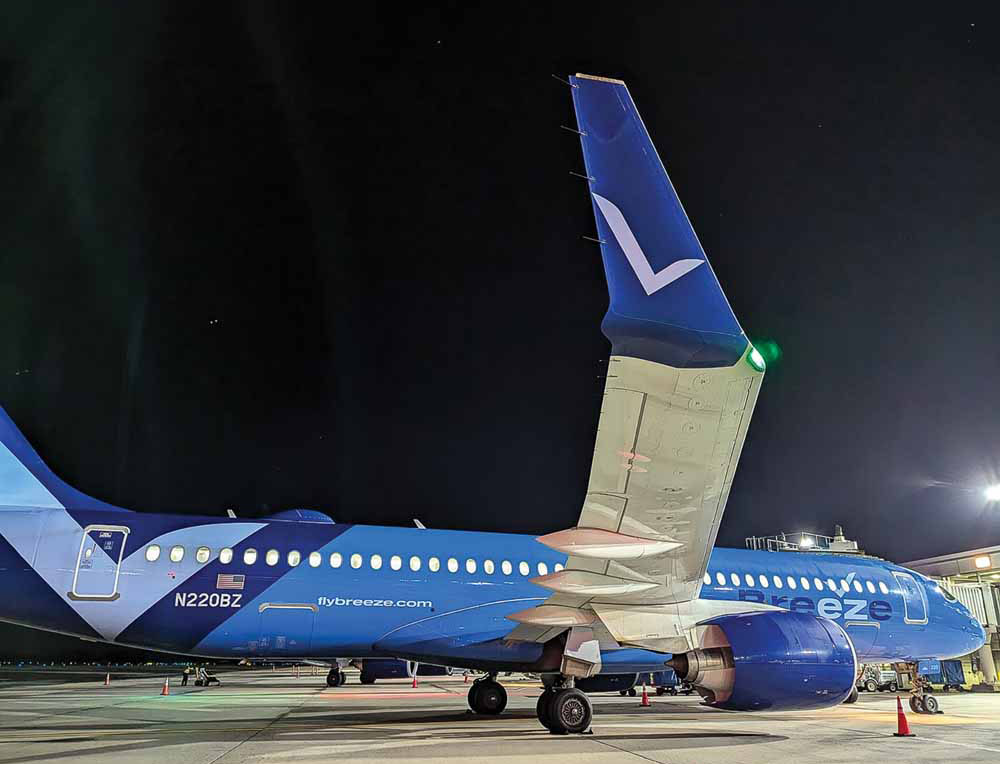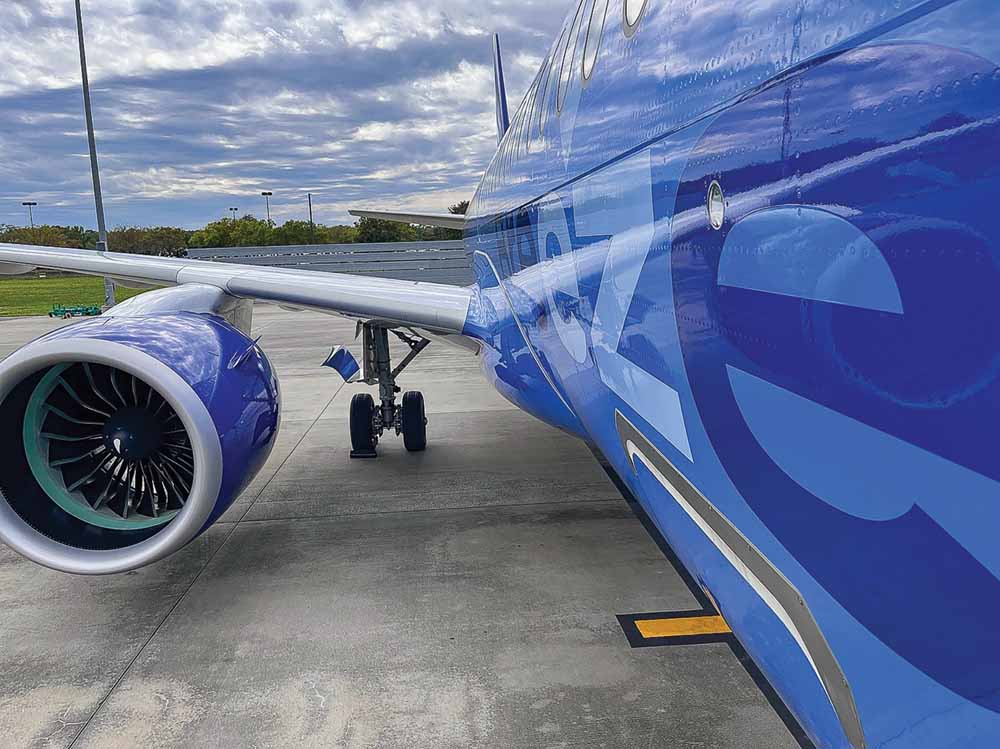Breeze Airways

Capt. Jason LaRocco at Tampa International Airport by Breeze Airway’s first A220. The aircraft was delivered in January 2022.
At A Glance
Pilots joined ALPA: 2022
Number of pilots/flightcrew members: 407
Pilot bases: Providence, R.I.; Tampa, Fla.; Charleston, S.C.; Norfolk, Va.; Hartford, Conn.; Provo, Utah; and New Orleans, La.
Key markets: Las Vegas, Nev.; Los Angeles and San Francisco, Calif.; Tampa, Fla.; and Phoenix, Ariz.
Headquarters: Cottonwood Heights, Utah
Operations: Breeze operates flights to 38 destinations in the U.S.
Fleet: 10 EMB190s, 6 EMB195s, and 17 A220s
Beginning 2023 with a newly elected Master Executive Council, chaired by Capt. Alexander Kluge, and Negotiating Committee, chaired by Capt. Mark Kurdzel, Breeze Airways pilots entered negotiations for their first collective bargaining agreement in January. In fall 2022, Breeze Airways filed a complaint to overturn the National Mediation Board’s (NMB) certification of ALPA as the pilot group’s bargaining representative, arguing that the NMB violated the Railway Labor Act by not including 71 trainees who hadn’t completed IOE and begun line flying at the time ALPA filed its application for an election.
The NMB’s decision was consistent with nearly 40 years of legal precedent affirming that employees aren’t in the pilot class or craft until they complete training and IOE and are able to fly the line. ALPA became an intervenor defendant in the case, and the NMB and ALPA both moved to dismiss the lawsuit. In May, the U.S. District Court in Salt Lake City rejected the airline’s challenge to ALPA’s certification as the bargaining representative of Breeze pilots. Management has since appealed the decision to the U.S. Court of Appeals. The briefing in the case will be complete in February and then the court will issue a decision, which could take more than a year.
Since joining ALPA, the pilots have established a robust committee structure, with 13 standing committees in place. The Negotiating Committee secured nine tentative agreements in 2023. In November, the committee reached tentative agreements on Transfer to Nonflying or Supervisory Duty (Section 10); Investigation and Discipline (Section 19); Grievances (Section 20); System Board of Adjustment (Section 21); and Reduction in Force, Furlough, and Recall (Section 23) with management. In December, the committee added Workers’ Compensation (Section 16) to this list. Although there have been challenges in negotiations due to frequent management leadership changes, the pilots are optimistic and will continue fighting for improvements in job security, compensation, scheduling, and quality of life in their first collective bargaining agreement.


